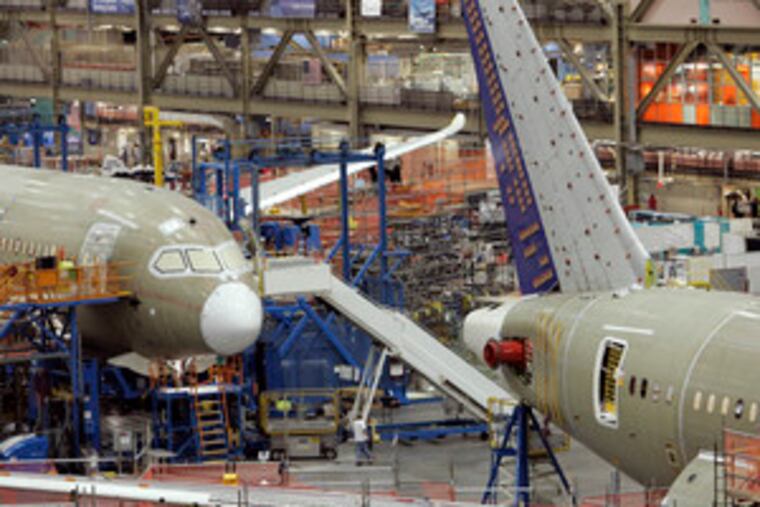Boeing near milestone on new 787
EVERETT, Wash. - The first of Boeing Co.'s highly anticipated 787 jetliners is on track for a June "power-on" milestone, and subsequent planes are arriving at the final assembly floor in better and better shape, the executive in charge of the 787 program says.

EVERETT, Wash. - The first of Boeing Co.'s highly anticipated 787 jetliners is on track for a June "power-on" milestone, and subsequent planes are arriving at the final assembly floor in better and better shape, the executive in charge of the 787 program says.
Boeing invited reporters into its 98-acre production area Monday to show that the aircraft-maker has overcome parts shortages and hiccups in its new, decentralized manufacturing model, and is making steady progress toward the 787's much-delayed first flight.
Last month, Boeing postponed the jet's debut in commercial service until the third quarter of 2009. The latest delay was the third revision to its delivery schedule. The delays will likely cost the company billions of dollars in additional costs and penalties.
Inside the massive hangar, four planes were lined up nose-to-tail in varying states of completion. Patrick Shanahan, general manager for the 787 program, said the mood on the assembly floor had shifted from frustrated to fired-up in the last two months as the installation of critical systems on Plane No. 1 neared completion.
Powering up the 787 for the first time - a major milestone, but one of many that remain before Boeing can deliver the first of its new planes - will show the company how successful its next-generation production model really is. The company relied almost entirely on outside companies around the world to manufacture, test and put together major parts of the aircraft before shipping them to Everett for final assembly.
The 787, Boeing's first newly designed jet since airlines started flying the 777 in 1995, will be the world's first large commercial airplane made mostly of carbon-fiber composites, which are lighter and more durable than aluminum and do not corrode as metals do. Boeing says it will be cheaper to maintain and offer greater fuel efficiency than comparable planes flying today.